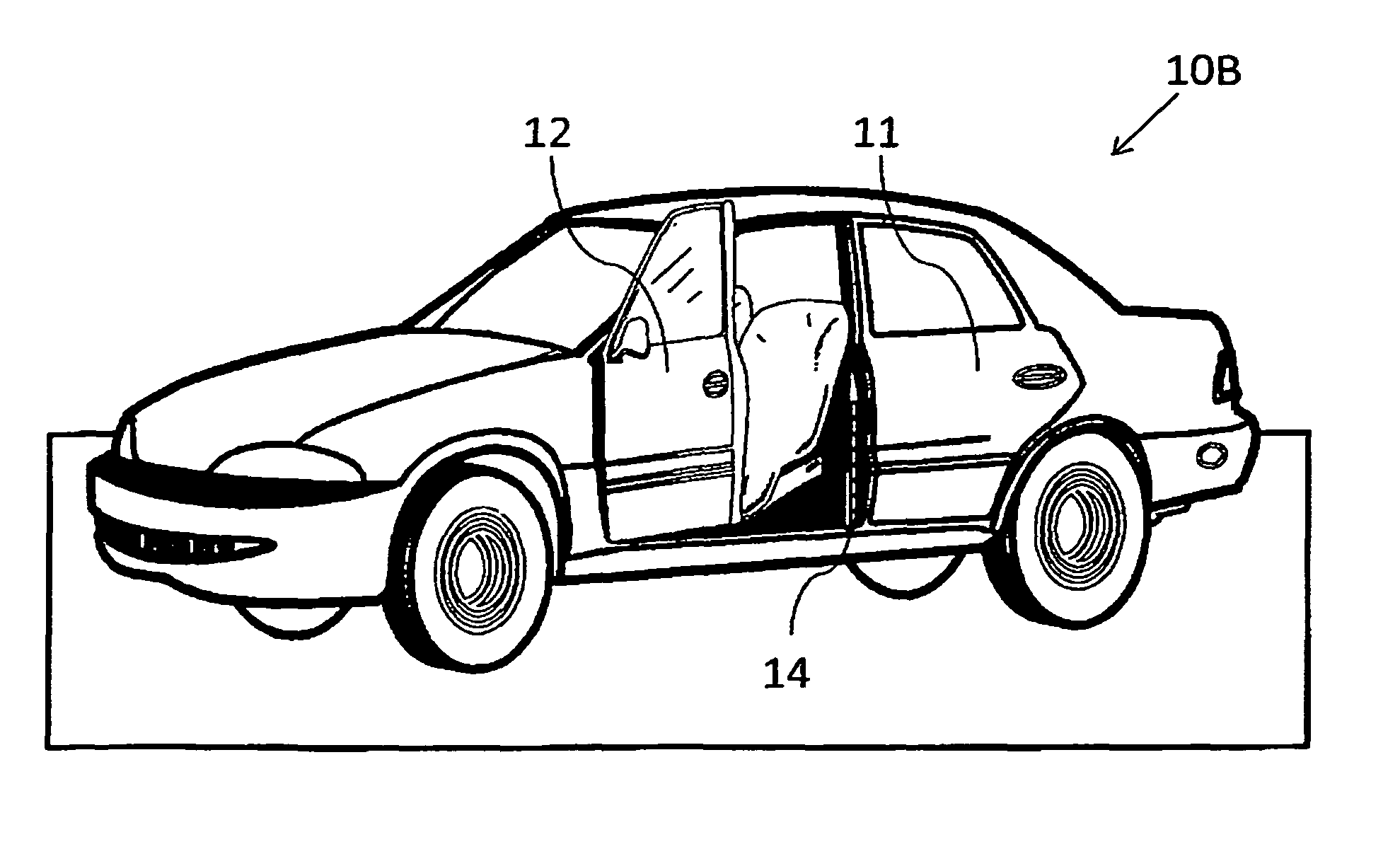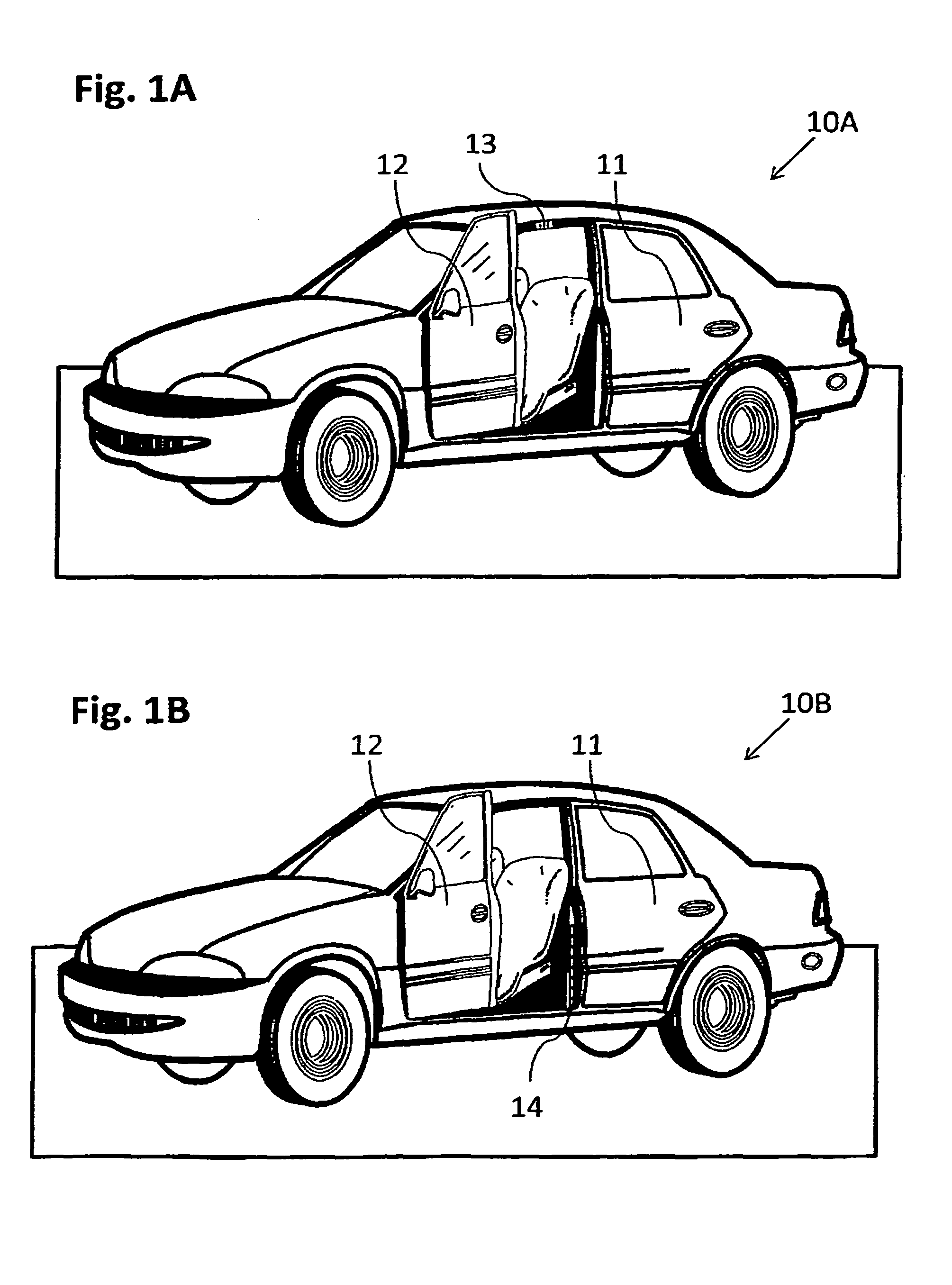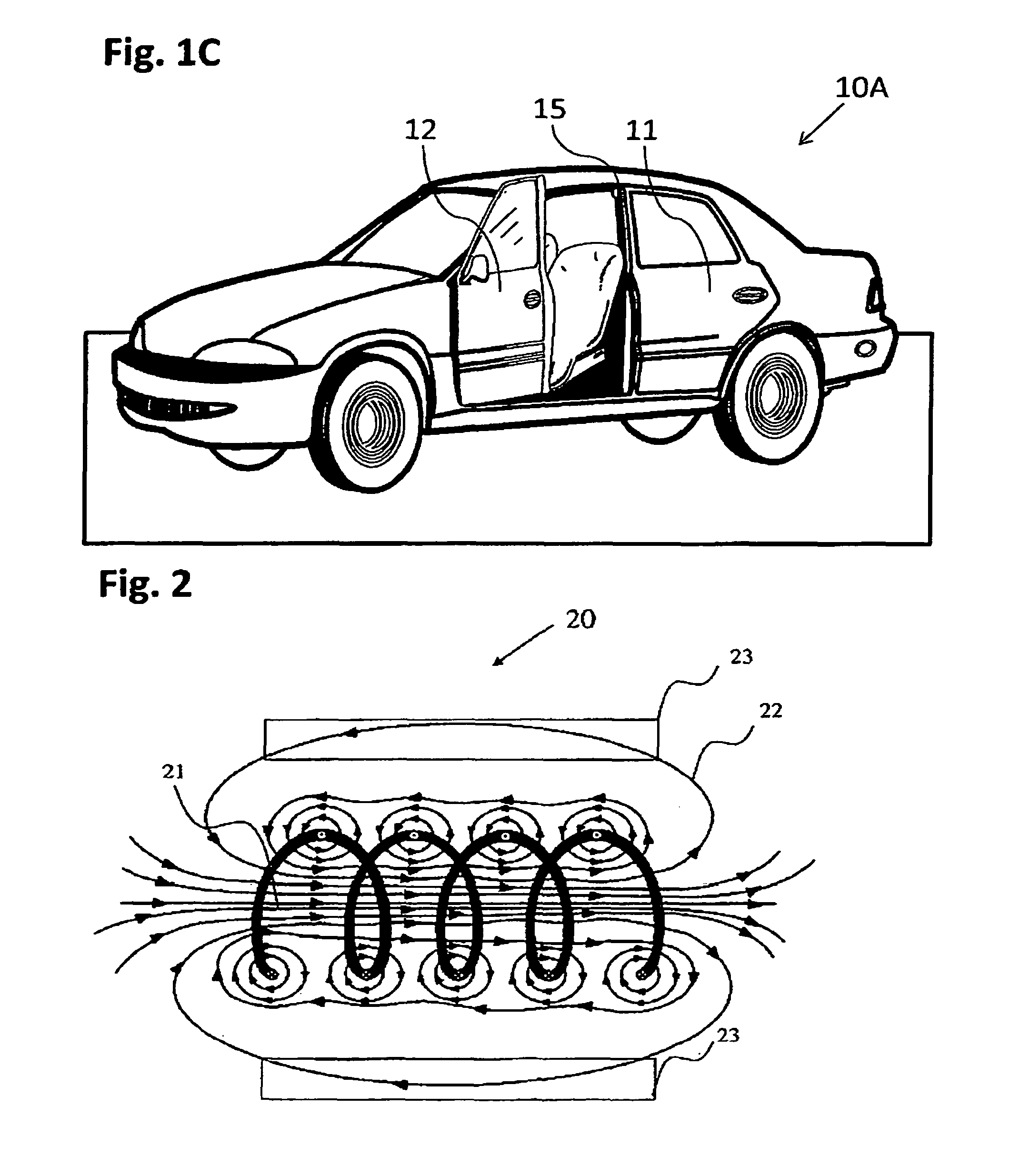System for selectively disabling cell phone text messaging function
a cell phone and function technology, applied in the field of cell phone systems, can solve the problems of major problems such as the inability to restore the function of text messaging, the inability to send messages to passengers, and the inability to disable the text messaging functionality of the cell phone, so as to achieve a higher level of safety
- Summary
- Abstract
- Description
- Claims
- Application Information
AI Technical Summary
Benefits of technology
Problems solved by technology
Method used
Image
Examples
first embodiment
[0041]Thus, when a driver enters the automobile through the driver-side door, the broadcast signal system is activated and sends a low power, local signal to the cell phone. This signal broadcasting system is local, meaning that it is only effective at or near the front, driver-side door of the automobile. Without being bound by any theory, it is believed that in the case of the modulated radio frequency signal of the first embodiment, the coil configuration focuses the modulated radio frequency signal within the doorframe of the driver-side door.
[0042]The return path of the magnetic flux field passes through the ferromagnetic doorframe. Hence, the signal broadcast is too weak to be effective elsewhere, such as at the door opening directly behind the driver-door opening. With this arrangement, the text messaging functionality is not deactivated for cell phones passed through any of the doors of the automobile other than the driver-side door.
[0043]A sensor within the cell phone recei...
second embodiment
[0049]FIG. 1B illustrates the invention generally at 10B, wherein the driver-side doorframe of the automobile has an antenna 14 operating in accordance with a Bluetooth® protocol to broadcast a low-power modulated Bluetooth® signal. This signal is largely localized within the driver-side doorframe. The cell phone in this embodiment is equipped to receive the Bluetooth® modulated signal broadcast by antenna 14.
third embodiment
[0050]FIG. 1C illustrates the invention at 10C, wherein the driver-side doorframe of the automobile has an infrared source, such as light emitting diode 15 emitting a modulated infrared signal. The emitting source is configured such that the light it produces is localized within a small region proximate driver-side doorframe. A sensor in the cell phone used in this embodiment is designed to receive the modulated infrared signal. The modulated infrared communication requires a direct line of view from the signal broadcasting infrared emitting diode to the cell phone. This signal is generally large enough to go through articles of clothing, such as a shirt pocket, in which a driver's cell phone might be carried.
[0051]FIG. 2 illustrates at 20 the coil of the first embodiment showing a concentrated magnetic field 21 in the central region of the radio frequency generating coil. The returning magnetic flux lines 22 return through the doorframe 23. Since the door frames are made from steel...
PUM
 Login to View More
Login to View More Abstract
Description
Claims
Application Information
 Login to View More
Login to View More - R&D
- Intellectual Property
- Life Sciences
- Materials
- Tech Scout
- Unparalleled Data Quality
- Higher Quality Content
- 60% Fewer Hallucinations
Browse by: Latest US Patents, China's latest patents, Technical Efficacy Thesaurus, Application Domain, Technology Topic, Popular Technical Reports.
© 2025 PatSnap. All rights reserved.Legal|Privacy policy|Modern Slavery Act Transparency Statement|Sitemap|About US| Contact US: help@patsnap.com



